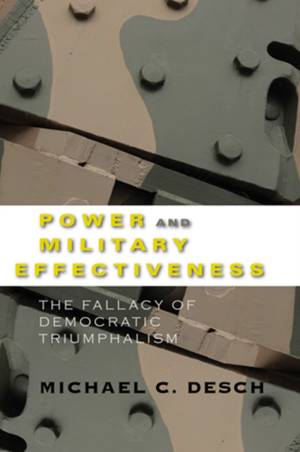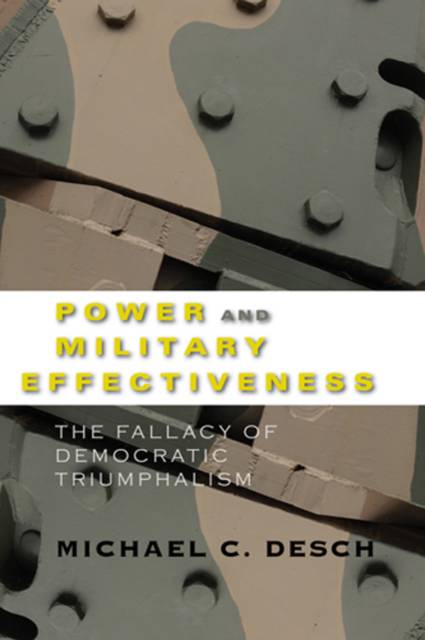
- Retrait gratuit dans votre magasin Club
- 7.000.000 titres dans notre catalogue
- Payer en toute sécurité
- Toujours un magasin près de chez vous
- Retrait gratuit dans votre magasin Club
- 7.000.000 titres dans notre catalogue
- Payer en toute sécurité
- Toujours un magasin près de chez vous
Power and Military Effectiveness
The Fallacy of Democratic Triumphalism
Michael C DeschDescription
Since 1815 democratic states have emerged victorious from most wars, leading many scholars to conclude that democracies are better equipped to triumph in armed conflict with autocratic and other non-representative governments.
Political scientist Michael C. Desch argues that the evidence and logic of that supposition, which he terms "democratic triumphalism," are as flawed as the arguments for the long-held and opposite belief that democracies are inherently disadvantaged in international relations. Through comprehensive statistical analysis, a thorough review of two millennia of international relations thought, and in-depth case studies of modern-era military conflicts, Desch finds that the problems that persist in prosecuting wars--from building up and maintaining public support to holding the military and foreign policy elites in check--remain constant regardless of any given state's form of government. In assessing the record, he finds that military effectiveness is almost wholly reliant on the material assets that a state possesses and is able to mobilize.
Power and Military Effectiveness is an instructive reassessment of the increasingly popular belief that military success is one of democracy's many virtues. International relations scholars, policy makers, and military minds will be well served by its lessons.
Spécifications
Parties prenantes
- Auteur(s) :
- Editeur:
Contenu
- Nombre de pages :
- 248
- Langue:
- Anglais
Caractéristiques
- EAN:
- 9780801888014
- Date de parution :
- 14-04-08
- Format:
- Livre relié
- Format numérique:
- Genaaid
- Dimensions :
- 166 mm x 232 mm
- Poids :
- 471 g







